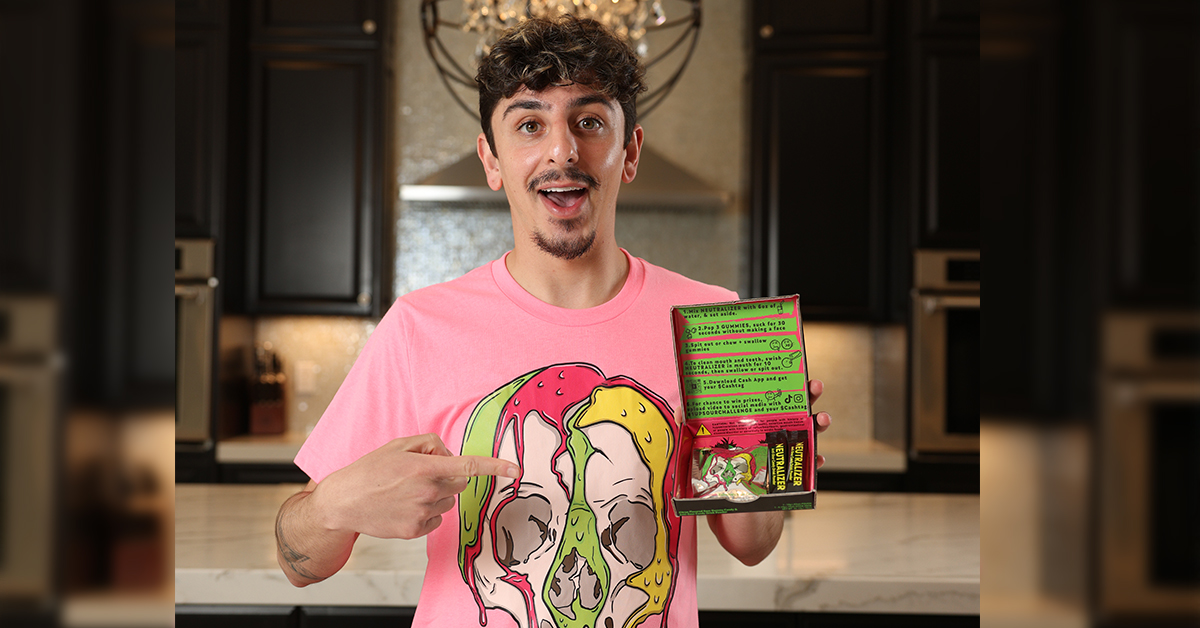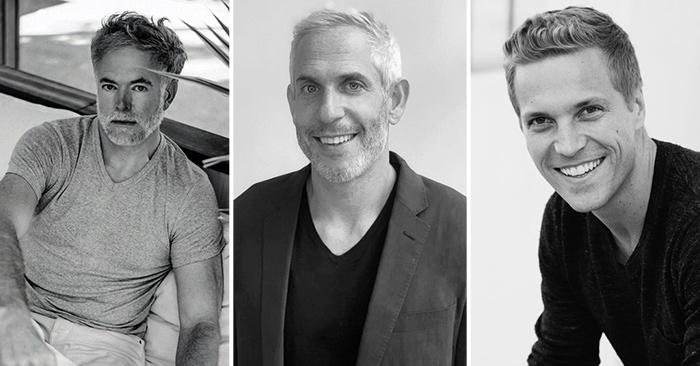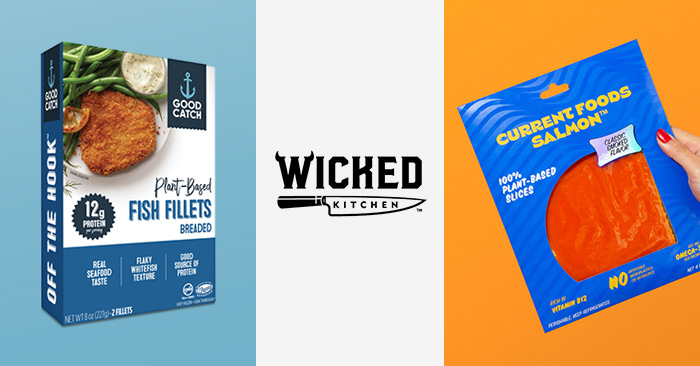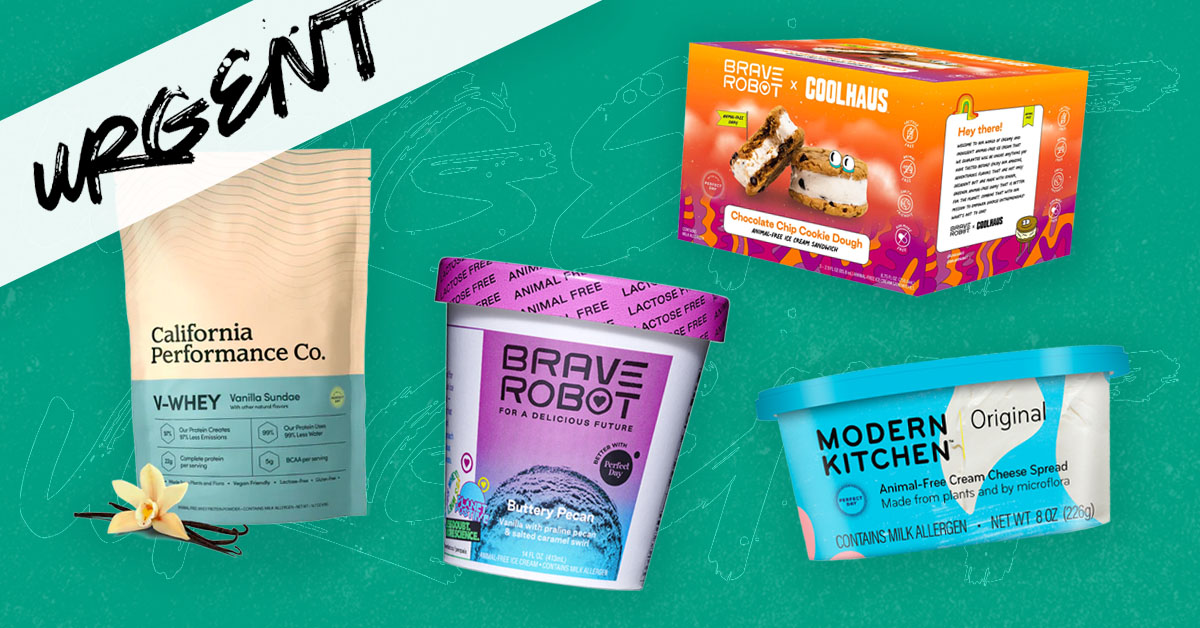The Top 10 Most Read NOSH Stories of 2023
Amidst the layoffs and closings, failed Erehwon dreams, and bitter fights over plant-based cheese, there were some brighter moments amidst our top 10 most popular NOSH stories from this year, as well… Right? Thank goodness for FaZe Clan and Family Fund.

10. Faze Clan Co-Owner Launches 1Up Candy
Content creator Brian “FazeRug” Awadis – who has amassed an audience of 24.9 million subscribers on YouTube – in May launched 1Up Candy, a startup producing non-chocolate candies.
The brand’s single debut product, The Sour Gummy Challenge kit, contains six extremely sour gummies and tasks consumers with sucking on three of them on camera for thirty seconds while keeping a straight face.
To start, 1Up CEO Matt Weiss said the company will utilize a “drop-based” innovation model centered around limited edition releases sold direct-to-consumer, with a transition to brick-and-mortar retail expected later on. The ultimate goal for the company, according to both Awadis and Weiss, is to “push the envelope” with innovation in two separate pipelines, one focused on flavor and the other focused on experiential products such as the Sour Gummy Challenge.

9. CPG Execs Announce The Family Fund, Will Invest $25M
New investment funds always get a lot of attention, and even moreso when names like these are involved: in March, we reported the story about how experienced entrepreneurs and CPG venture specialists – Josh Wand (ForceBrands), Sean Kelly (Caroo) and Kurt Seidensticker (Vital Proteins) – are taking a founder-first perspective into their new venture group, Family Fund and Founder Community (F3C).
Starting with a $25 million pot, the group expects to make 30 core deals, roughly eight a year, in early stage companies with check sizes of approximately $1 million. F3C plans to co-lead or co-invest alongside other firms, with existing partners on deals including ACG, VMG, M13, Strand Capital, TTV and Slow Ventures.
“This is a fund created by founders, led by and operated day-to-day by founders, current operators and entrepreneurs, in Josh, Kurt, and I,” Kelly said. “Every single one of our checks is from a founder operator and entrepreneur…. When we connect with founders, we have a level of insight and empathy of being founders alongside them at the same time.”
8. Wicked Kitchen Acquires Current Foods in Cashless Deal

In May, plant-based food company Wicked Kitchen acquired Current Foods, a Minneapolis-based producer of plant-based “raw” seafood, in a cashless deal.
The transaction deepens the company’s food service offerings and grows its portfolio of plant-based seafood products following its 2022 acquisition of Good Catch. After the deal, Current’s investors, which include Ray Lane, the managing partner at GreatPoint Ventures, Union Grove Venture Partners, Astanor Ventures, Electric Feel Ventures and NBA player Chris Paul became shareholders in Wicked.
At the time of the transaction, Wicked CEO Pete Speranza told NOSH he expects sales to grow as the company is able to fully integrate, and benefit from, the Good Catch and Current brands. Wicked is currently rethinking its overarching brand strategy, with Speranza hinting that the Wicked brand will soon be featured prominently on packaging and marketing materials for both Good Catch and Current Food.
7. Upward Farms Closes “Infinitely Complex” Vertical Farming Operation

Grand opening, grand closing: just as Upwards Farms was set top open the “world’s largest” vertical-farming facility in April, the company abruptly pulled the plug, ceasing operations at its Brooklyn headquarters.
Launched in 2023, the Brooklyn-based company had been eager to tap into the growing trend of regenerative agriculture by leaning into their understanding of the soil microbiome of indoor grow facilities. The company’s production model used aquaponically grown hybrid striped bass (harvested for meat) to fertilize crops of USDA-certified, vertically grown microgreens.
Upward’s new 250,000 sq. ft. indoor aquaponic vertical farm in Luzerne County, Pennsylvania was set to supercharge growth and make good on the over $140 million poured in by investors thus far, but never made it to opening day.
That ambition may have not been realized, but other deeply resourced players like BrightFarms, Aerofarms and Gotham Greens remain committed to bringing vertically farmed produce into consumers’ shopping carts.
6. Seeking to ‘Move On,’ Schinner and Miyoko’s Settle

After a months-long public spat between Miyoko’s vegan creamery and founder Miyoko Schinner concerning their breakup, the two parties in May settled their respective lawsuits. Days after being sued over the theft of company property in February, Schinner had retaliated with her own suit alleging misogynistic treatment by the company’s board of directors.
But posts shared on both Schinner’s and Miyoko’s Instagram and LinkedIn accounts confirmed that all claims by both parties had been withdrawn. No further details were provided.
In a joint statement, Miyoko’s called Schinner “a true pioneer in vegan products” while Schinner said she “appreciates the dedicated team of people at Miyoko’s Creamery” who will be continuing her “legacy.”
5. Perfect Day Lays Off 15% of Workforce, Shutters Consumer Biz & Coolhaus

Animal-free dairy maker Perfect Day downsized in July, laying off roughly 15% of its workforce – a total of 134 employees across the U.S., U.K. and Asia. The move was a part of a decision by the company to nix its consumer brands subsidiary, The Urgent Company. That division counted Modern Kitchen, Brave Robot, Coolhaus and California Performance Company in its portfolio.
Perfect Day said it intends to refocus its business solely on being a B2B ingredient supplier, as well as acting as a consulting group for precision fermentation needs. In a statement, the company said The Urgent Company had been intended as a temporary venture since it was launched.
4. Erewhon Announces New York City Plans

Back in May, in a quickly-deleted LinkedIn post, EVP Vito Antoci of Erewhon – the LA-based grocery store with a cult-like following – said the store was sorting through “hundreds” of inquiries from brands interested in participating in a New York City popup. Antoci even added the hashtag #ErewhonSmoothiePopUp to his post, hinting at a possible event centered around the grocer’s popular Tonic Bars.
However, that optimism proved to be short-lived, as we’ll see later.
3. Whole Foods Resets Regions, Promises Business As Usual for Brands

Readers were certainly curious to learn what was happening inside Whole Foods this April when the retailer announced it had redesigned its region map, going from nine to six total regions in North America. The natural grocery chain said the move allowed it to have a “more consistent” number of stores in each region and reassured brands that the move would not impact merchandising or distribution, but it may affect what regions they are officially counted in.
That news came on the heels of a report that Whole Foods had laid off employees in its global and regional headquarters.
2. Miyoko’s Lawsuit Alleges Founder & Ex-CEO Stole Company Property, Trade Secrets

If you’ve scrolled down this far, you already know vegan cheese company Miyoko’s started off the year with a lawsuit against its founder and ex-CEO Miyoko Schinner alleging she stole trade secrets and confidential information after being dismissed in 2022.
In the complaint filed with the Northern District of California Court on February 17, attorneys for Miyoko’s claim Schinner stole thousands of documents, proprietary research and company property after being dismissed from the company. She was also accused of owing approximately $112,500 in a promissory note to the company.
1. Erewhon Nixes NYC Popup Plans

The number one most read NOSH story of 2023 was one that probably came as a disappointment to brands and consumers alike as premier West Coast natural channel retailer Erewhon shot down reports that it would be opening a popup location in New York City this summer.
As mentioned earlier, Erewhon EVP Vito Antoci had teased an upcoming East Coast popup on LinkedIn this Spring, but his posts were later deleted as the retailer said it intends to focus on growing its local footprint in Southern California rather than looking elsewhere. Alas, all your clicks couldn’t save this dream.















